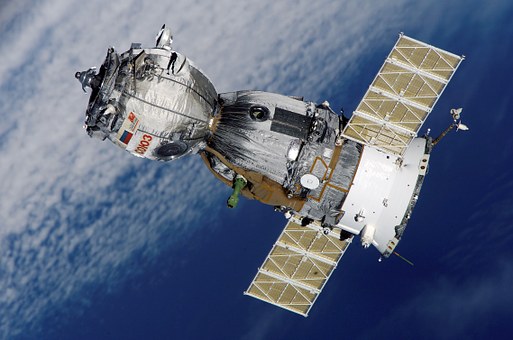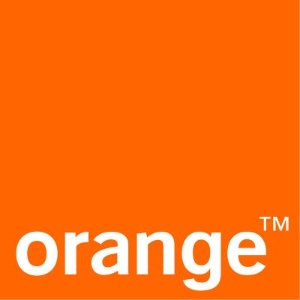Mobile operators realise that consolidation in most mature markets in inevitable, it’s just a shame that the regulatory regime has a habit of slowing things down. Business technology journalist, Antony Savvas looks at another big potential market shake-up, if it’s allowed to happen?
Orange has moved to merge its Spanish mobile network with Spain rival Masmovil, to create the country’s biggest mobile business with an enterprise value of €19.6 billion, if regulators give the green light.
The co-controlled firm would have annual revenues of more than €7.5 billion, and would overtake Telefonica as Spain’s biggest mobile network with a total of 24.5 million customers, instead of Orange being number two and Masmovil number four. Vodafone would come in at number three, which, ironically, had considered a takeover of Masmovil in 2020.
Smaller acquisitions are not new in Spain, with Masmovil having snapped up the nation’s fifth biggest operator Euskaltel for €2 billion last summer, just a year after Masmovil had been bought by investment firms KKR, Cinven and Providence. KKR, of course, currently has a bid on the table to buy Telecom Italia, which increasingly looks like being rejected by “golden share” holder the Italian government.
A little slack

With telcos expected to spend billions more on new fibre backbone networks and 5G networks to keep up with high-capacity demand, maybe it’s time that the firms were given a little slack to change market ownership, to enable them to improve economies of scale to make their businesses financially viable?
After all, the companies generating the most data on these networks, the app and content providers like Google, Apple, Netflix, Facebook and Amazon, aren’t exactly rushing forward to splash the cash in helping to build the networks that support their business models.
Orange and Masmovil reckon their merger agreement will be signed by the second quarter of this year, and “closed” by second quarter of 2023, depending on regulatory approval. Things are far from certain though.
IPO problem?
The fact that the merger agreement covers the possibility of an IPO, with Orange being the lead partner in such a transaction, may mean that the Spanish government might not be too keen in having its leading mobile network effectively under French control.

And the European Commission might also take the position that having a single owner leading the market in both France and neighbouring Spain is not good for European competition. After all, it wasn’t even happy about 3 owner Hutchison acquiring Telefonica’s O2 network in the UK, on competition grounds, and blocked the deal.
That proposed deal would have reduced the UK market to three major networks instead of four, which would be the same result in Spain if Orange and Masmovil get their way.
Jacques de Greling, director at credit rating agency Corporate Ratings, says: “Orange faces a long period of regulatory uncertainty over its plan, in a test of Europe’s anti-trust framework in the sector.
“With the private equity firms which own Masmovil eager to exit Spain’s low-growth, but comfortably profitable market, and Vodafone unwilling to take on the role of consolidator, it has fallen to Orange to make the attempt.”
18 months of uncertainty
Stéphane Richard, Orange’s outgoing CEO, acknowledged in an investor call last month, that the anti-trust framework in Brussels has not changed. But Richard said arguments for in-market consolidation were now stronger, as there are now players in the market that did not exist five years ago.

But, he also added that the main problem for the telecoms industry is “self-censorship”: if you don’t submit a project in Brussels, you don’t know if there is a change in the regulatory climate. Richard said the price to pay for triggering in-market consolidation in a market like Spain’s is a 12-18 months anti-trust process in Brussels, with all the associated uncertainties.
“An important barometer of whether the European Commission is more or less willing to consider in-country telecoms consolidation, without significant remedies, will be the outcome of its appeal against a court decision to overturn the EC’s blocking of the merger of Hutchison’s and Telefonica’s operations in the UK,” says Corporate Ratings’ De Greling.
That verdict of the European Court of Justice is not expected for some months. That in itself is a farcical situation, seeing the deal was proposed six years ago, and since then, of course, O2 in the UK has already merged with Virgin Media!
Telcos need more certainty from the regulators now, to help them put their houses in order and deal with a rapidly changing market.

IoT out of this world
Sparkle, the international data centre and business services arm of Telecom Italia, has unveiled its IoT Global managed IoT (Internet of Things) connectivity service for companies. The service allows them to control their assets across multiple countries using a global network of M2M (machine-to-machine) SIMs, supported by roaming agreements with more than 500 mobile operators.
With low latency being promised, Sparkle says IoT Global is particularly suitable for applications requiring real-time control and precision in business processes.
Not to be outdone though, Omnispace announced an agreement with Lacuna Space, to collaborate on the distribution of a “ground-breaking” IoT service. The service will employ the LoRaWAN protocol to support direct-to-satellite communications for a broad range of IoT devices.

The protocol will utilise Long-range frequency hopping spread spectrum (LR-FHSS) technology, which is specifically designed for high-capacity IoT networks. Leveraging Omnispace’s licensed 2GHz S-band spectrum rights, and integrating with Lacuna satellite infrastructure, the service will allow devices to connect seamlessly between existing terrestrial networks and previously unconnected regions around the globe.
It will begin serving customers and distribution partners in Q3 2022, powering asset tracking, fleet management and data collection across industries globally. The initial set of Lacuna sensors are smaller than the palm of a hand, and can connect over satellite for several years off a single battery charge, “providing customers with affordable and simplified communications”.
While traditional telecom services and their providers continue to be bound in red tape, at least companies like this can just get on with it.
The author is Antony Savvas, a global freelance business technology journalist.
Comment on this article below or via Twitter: @VanillaPlus OR @jcvplus






